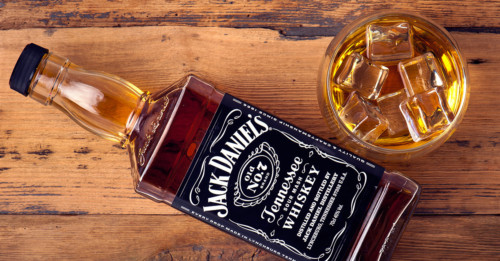Tennessee Whiskey Essential Info
- Color: Light brown to rich amber
- Region: Tennessee
- ABV: At least 40 percent ABV
- Aged: Yes, in charred new oak barrels
- Made from: 51percent corn, filled out with rye, barley, or wheat
- Commercial Examples: George Dickel, Jack Daniel’s, Prichard’s, Collier and McKeel, Nelson’s Green Briar
- Popular Cocktails: Mint Julep, Whiskey Sour, Improved Whiskey Cocktail
Ever wonder about Tennessee Whiskey? Well, you’ve come to the right place. While one might reasonably assume that Tennessee Whiskey is just whiskey made in the state of Tennessee, there’s actually legally more to it than that (though, of course, that’s part of it). Here’s what you need to know.
Basically made in the same fashion as Bourbon — with 51 percent corn (with the rest of the mash bill filled out with rye and barley), and aged in charred new white oak barrels — Tennessee Whiskey is differentiated by one more step, known as the Lincoln County Process. To be labeled Tennessee Whiskey, the whiskey must be charcoal-filtered prior to aging. Not that we want to challenge anyone from Kentucky or Tennessee (or anywhere) about what makes any particular whiskey special…
The charcoal used for Tennessee Whiskey is obtained from specially selected sugar maple trees, which are often seasonally burned on the premises to make charcoal. Charcoal is used in distilling for its filtration properties (it removes the color from aged white rums), and here is thought to result in a smoother overall product — which is why the Lincoln County Process is also referred to as “charcoal mellowing.”
Other whiskeys can be made in Tennessee, but unless they’re 51 percent corn and use the Lincoln County Process, they won’t be labeled “Tennessee Whiskey” (rather, if they’re made with a large proportion of rye or corn, they might be called Tennessee Rye or Corn Whiskey). There has also been some dispute as to whether whiskeys made in Tennessee but aged elsewhere (e.g. Kentucky) can still be labeled Tennessee Whiskey. From a drinker’s perspective, though, expect something rich and mellow, and slightly lighter than bourbon, since that extra filtration removes more congeners.
Header image via Jozef Sowa / Shutterstock.com
